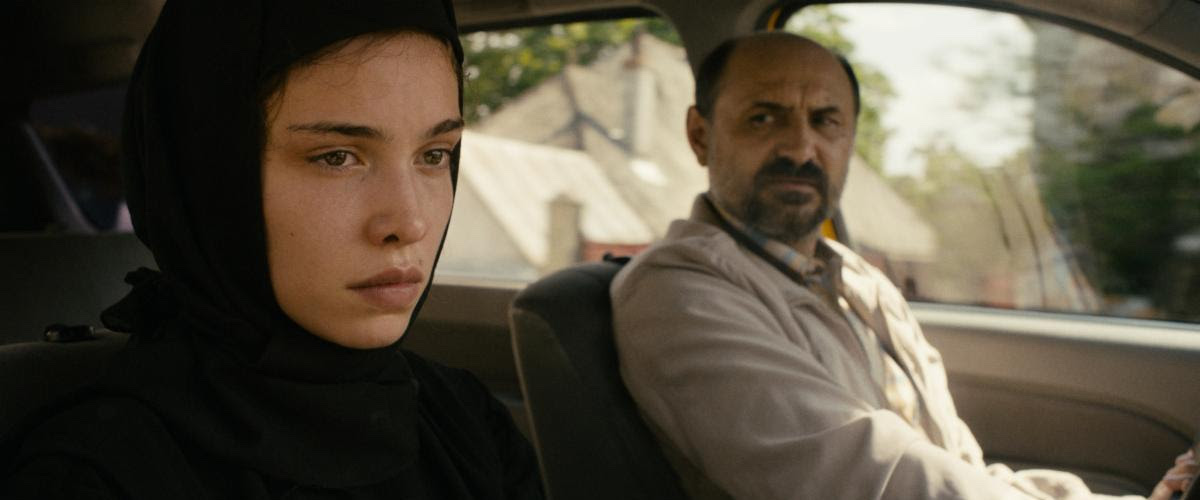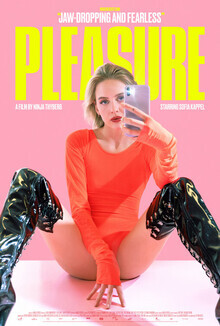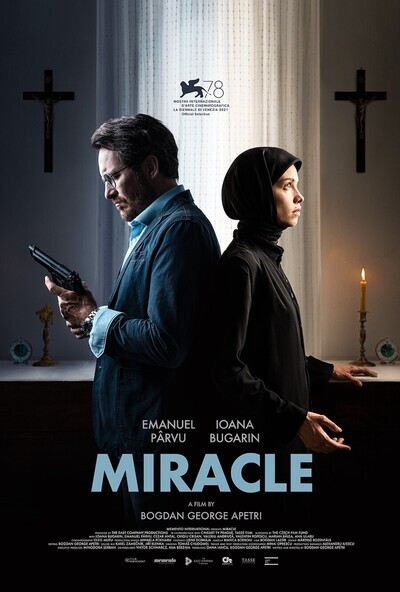
Now streaming on:
From its opening, there’s a distinct sense of unease shrouded over “Miracle,” the third feature written and directed by Romanian filmmaker Bogdan George Apetri. Shooting in close-up or medium close-up for the most part, the film shows a young woman, Cristina (Ioana Bugarin), preparing to abscond from the convent where she lives.
As she makes her way out of the place, the camera stays in front of her, then moves to her side, then gets behind her, moving nearer, farther, nearer, like some kind of guardian angel, only of course it is not.
Fair of face and pale of skin, Cristina could be a figure out of a fairy tale, but she’s in a much darker mood than such characters. Frowning and tight-lipped, she’s not happy when her cranky cab driver insists that she sit up front with him. It soon transpires that the driver is the brother of a worker in the convent, and he’s giving Cristina a ride as a favor to her, and not the worried-looking, deathly quiet young woman. Soon he picks up a businessman as an extra fare. There’s some haggling about going off the meter when Cristina asks the driver to pull over to a secluded spot to change from her dark robes into a civilian outfit. For the scene, the camera looks in on the front seat throughout, in the manner of a Kiarostami picture. The driver and Cristina listen to the radio. The driver is particularly moved by the song “De-Ar Fi Sa VII” by Mihaela Runceanu, a Romanian pop diva who died in 1989. Every time the radio is on in this picture, it’s tuned to an oldies station, and listeners are moved to observe that things aren’t what they used to be.
Cristina is on her way to see a doctor; she mentioned headaches before leaving, but after the driver drops her outside a building and instructs her to meet him again at five that afternoon, she goes into an Ob/Gyn office. The questions this raises aren’t answers, because Cristina doesn’t keep the appointment with the cranky cab driver. Instead, she catches a ride with a more ostensibly pleasant cabbie. And here the very bad trouble starts.
The violence committed against Cristina is shown in a shot taken from a distance, traveling in a complete unbearable circle as we see little but hear an awful lot. After which we are back at the convent, and the camera is now following a police detective named Marius (Emanuel Parvu) whose probing questions and air of integrity make him look like the right man for this job.
But Marius is unusually fervent. He kicks his partner out of their car for spouting what Marius deems to be religious nonsense. And as he conducts an interrogation with a particularly non-communicative party (and she is non-communicative with good reason), the viewer has reason to believe the guy is literally out of his mind.
This episode of the film, too, culminates in shocking violence. But it also leads to the title event, which is puzzling in a great number of ways. The nature of the events depicted bring to mind past films by Bresson and Bergman (one thinks especially of the latter’s “The Virgin Spring”) but upon contemplation one realizes that whether allegorical or not, what the movie’s putting across is something that is itself vexed—like, in its view, the country in which it takes place.
Now playing in select theaters.
Glenn Kenny was the chief film critic of Premiere magazine for almost half of its existence. He has written for a host of other publications and resides in Brooklyn. Read his answers to our Movie Love Questionnaire here.







118 minutes
Ioana Bugarin as Cristina Tofan
Emanuel Pârvu as Marius Preda
Cezar Antal as Batin
Ana Ularu as Dr. Natalia Marcu